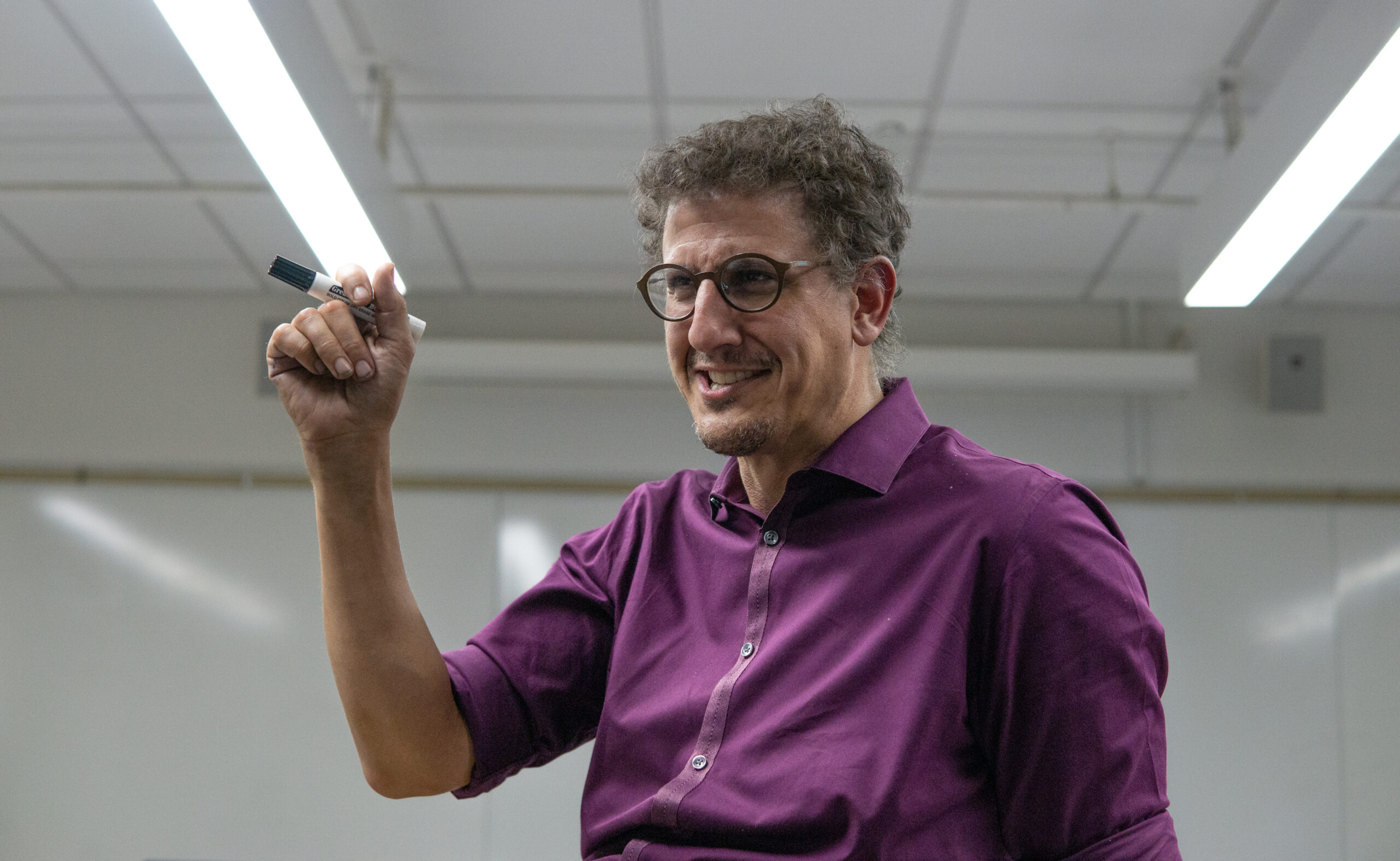An informal caffeinated conversation with the Cigar
Professor Nikolaos Poulakos, who’s actually not a coffee drinker (from first impressions) shares how he made it from hitchhiking around Europe as a college kid to teaching philosophy at the University of Rhode Island. PHOTO CREDIT: James Singer
Professor Nikolaos Poulakos, or simply Niko, works hard to create an exciting and interactive learning environment for students at the University of Rhode Island.
Poulakos teaches several communications classes at the Harrington School including COM 100H: Honors Section of Communication Fundamentals, COM 246: New Media and Society, COM 346: Social and Cultural Aspects of Media and COM 383: Rhetorical Theory.
For many, Poulakos is a well-liked professor, but he had a whole other life before he taught college students.
Poulakos spent his youth in Cincinnati, Ohio and Pittsburgh, Pennsylvania, before landing in Iowa for high school. After graduation, he attended the University of Iowa where he earned a bachelor’s degree in philosophy.
While pursuing his degree, Poulakos and his best friend went on a cross-country road trip to Las Vegas and the Grand Canyon, where they got in trouble for throwing rocks. He also spent time hitchhiking all across Europe from Holland to Luxembourg to Belgium to Germany to name a few.
“A friend of the family gave us a sleeping bag, a tent and a piece of cardboard, and we would just write cities on it and people would pick us up,” he said. “I don’t think that’s legal anymore.”
Coincidentally enough, one of the cars they hopped into belonged to Noëlle van Lottum, a former professional tennis player for France who played in the 1990s.
During his time as an undergraduate, one of his favorite extracurricular activities he did during his time at university was being on the debate team. In fact, he was the debate coach at DePaul University in Chicago, Illinois where he earned his master’s degree in communications.
From there, he started the doctorate program in cultural studies at the University of North Carolina Chapel Hill but decided to take a break to “see if there [was] anything else out there in the world.”
It wasn’t until the summer of 2013 when he finished his dissertation at the University of Iowa to earn his doctorate.
Before finishing his doctorate though, Poulakos took a full-time job teaching at Georgia State University.
“Atlanta was a great city, and I loved the students,” he said, “but I was working in the middle of downtown Atlanta where the headquarters of the police department were located and the Occupy Wall Street protests were happening, and my building was in between these two things that happened every day. I would get out of the subway and it’s like ‘ok, it’s war!’”
Poulakos explained how teaching in the South was a completely different experience than teaching in New England and said that teaching at Georgia State opened his eyes to larger structures of racism.
“[The University] had a racial feel to it, meaning there were a lot of white professors, and a lot of African American staff members,” Poulakos said. “You could feel the tension between people.”
Soon after finishing his Ph.D. program he interviewed for a job at URI and was hired to begin teaching at URI in the fall of 2013.
He said that URI “definitely has a different vibe” than teaching in a major city with police everywhere, according to Poulakos. He said that teaching on a secluded campus, away from the hubbub and craziness of the modern world was a nice change after teaching in such a busy and chaotic environment.
Poulakos’ teaching philosophy is guided by the notion that education can transform the categories in which you used to think about things such as politics, people, culture and the world in general.
“The goal is to change how students know things, not what they know,” Poulakos said. “I’m here to mold someone’s mind and if I do it right, they become the self-questioning person, and they become the educator of themselves so that they can question the categories they used to think about things. I want my students questioning reality, not absorbing reality.”
Poulakos’s past experiences have informed his teaching, and he’s looking forward to making many more memories and experiencing many more things at URI.





